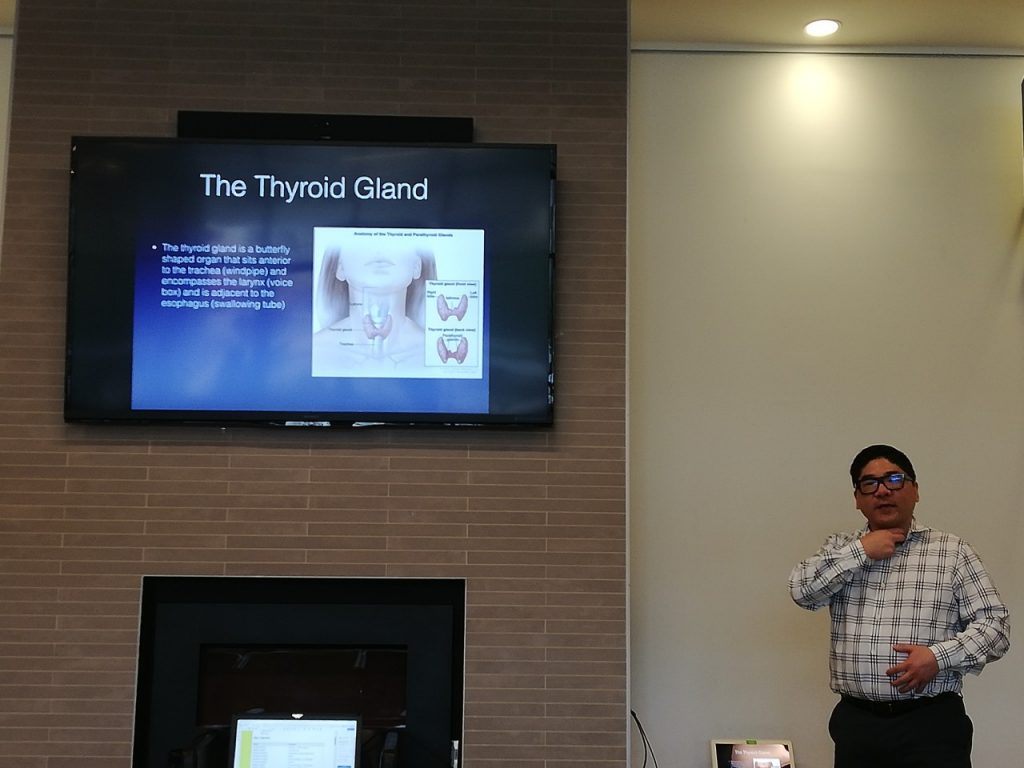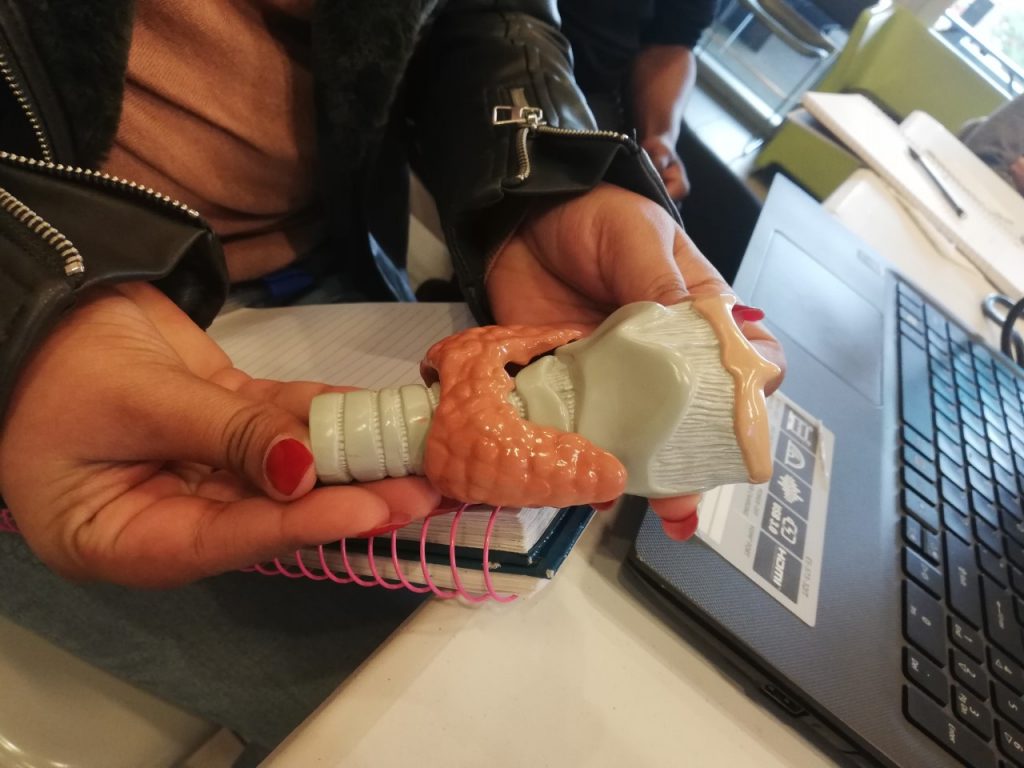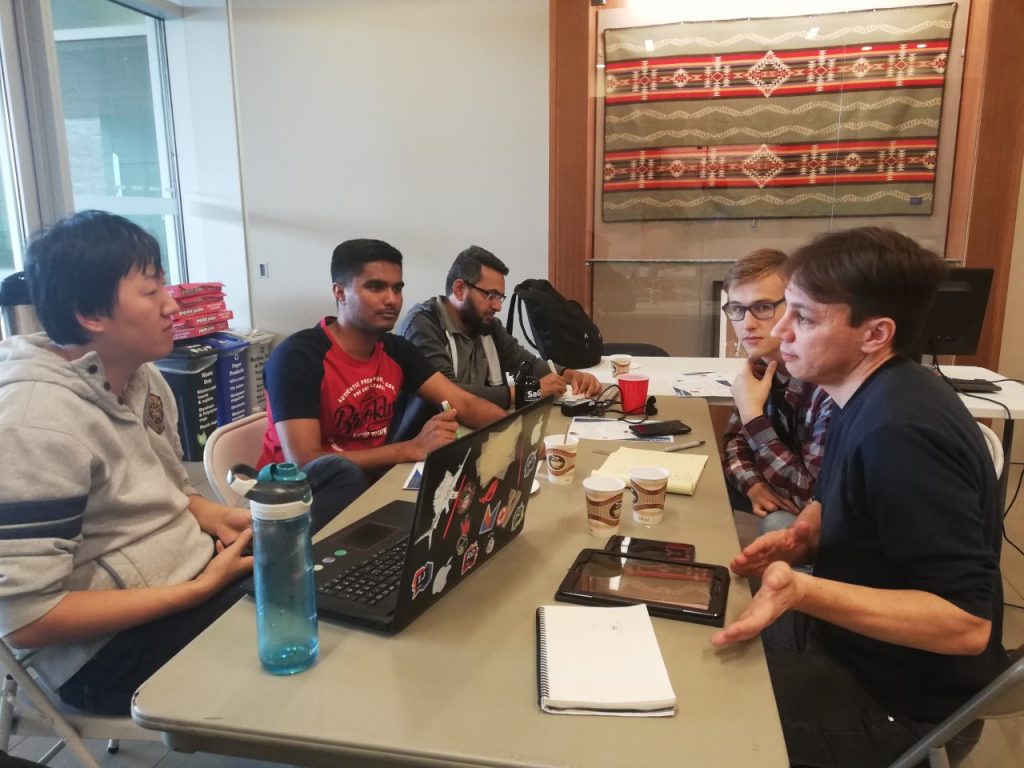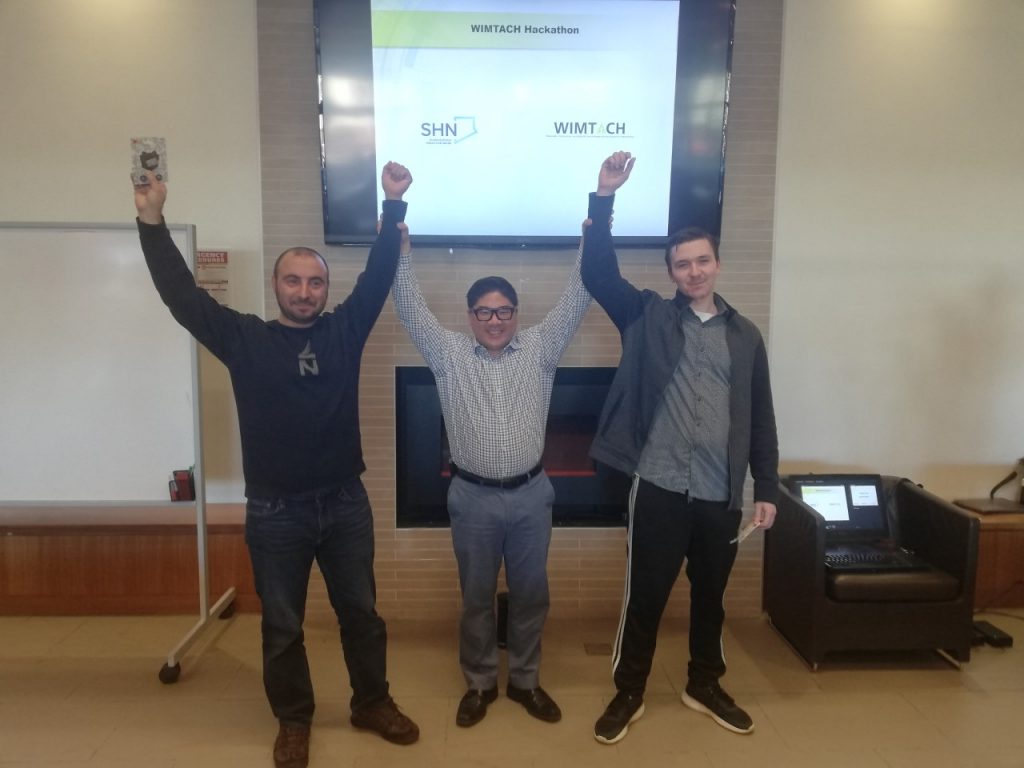Recap: Hackathon with Scarborough Health Network

Exam week at Centennial College didn’t stop 20 students from the latest WIMTACH hackathon.
From October 17-18, students from different academic backgrounds joined forces in their respective groups to tackle a surgery-related challenge that would provide a solution to a long-standing conundrum in the medical industry: neck and shoulder pain during thyroid surgery.
Dr. Michael Chang, the division head of Otolaryngology, Head and Neck Surgery at the Centenary Site for the Scarborough Health Network (SHN), provided the challenge to the participants: to produce a device that will maximize neck hyperextension but also increase the patient’s neck support and protection during thyroid surgery. This is an especially important challenge because of the rate at which it occurs during thyroid surgery, a very common surgery in Ontario, Dr. Chang explains:
“At SHN, we do about 300 per year. Most of the risk and complications that are associated with thyroid surgery we have mitigated such as nerve injury, hoarseness, bleeding and infection, with a lot of studies. Other issues become lower on the priority list. During their surgery, the patient has to have their neck in hyperextension and this causes a lot of stress on the C-spine and the posterior neck. Up to 80% of patients complain of post-operative sore neck, headaches and shoulder pain.”
Dr. Michael Chang

The decision to choose a hackathon to address this challenge was a no-brainer for Dr. Chang, who met Director of WIMTACH Dr. Purnima at an event at Holland-Bloorview Centre, because of the routine nature of his profession.
“What I like about this is that on a day-to-day basis, when I do these surgeries I do things routinely. This is just the way I’ve been doing it; I do hundreds of surgeries every year. I do them the same way. I think it’s great to get different perspectives and fresh minds and fresh eyes on a subject to look at things from outside the box from a different perspective.”
Dr. Michael Chang
Students worked over two days between 8:30am and 5:00pm to discuss their solutions with each other, problem-solve and create a presentations. They consulted with Dr. Chang and WIMTACH Research Associate Dr. Pouria Tavakkoli Avval. Since it was exam week, several students also bustled between their classrooms for exams and the Fireside Gallery, where the hackathon was being held. Despite the stress, exhaustion and nervousness that often comes with the process of taking exams, those students were fully committed to contributing significantly to their group. “I’m going to go to my exam and come back in about an hour and a half,” said one student.

After two long days, presentations were given in front of a panel of judges that included faculty members and other medical industry partners of WIMTACH. Each group discussed the rationale behind their solution, the actual solution and why it’s the most creative, practical and cost-effective. One group used an X-men film reference to provide their audience with a more concrete visual of what they were going for with their solution. The judges as well as other students asked presenters difficult questions to challenge their ideas and push the innovation of them at the same time.
During the judges’ deliberation, many students reflected on the experience together, discussing how fun the process was.
“This hackathon was pretty fun because we had two different ideas and we got into a big argument in the team, but it united us together to make it something really great,” said Oleksandr. “All things considered, every single group did a really good job. There was a very wide spread of novel takes on the problem,” said Dylan. “The thing is that hackathons give you a wide knowledge of different areas of studies not directly related to my field. For example, I’m a Software Engineer, but I can move to another brand of that, maybe biomedical,” said Akshay.

After a long deliberation, the winning team was Group 1. Their solution was practical and innovative enough to meet the requirements of the challenge. However, each participant of the hackathon expressed a winning attitude because of the experience of truly collaborating with others on a complex yet exciting challenge.
“This is my first hackathon,” said Jésus. “It was a really good experience. Having this approach of solving problems from real-life in a short time requires different skills and knowledge to share and give feedback. It was really interesting and I’m happy to be here.”
The next two hackathons are both happening on Oct 24-25. Visit the Events page for more details.


0